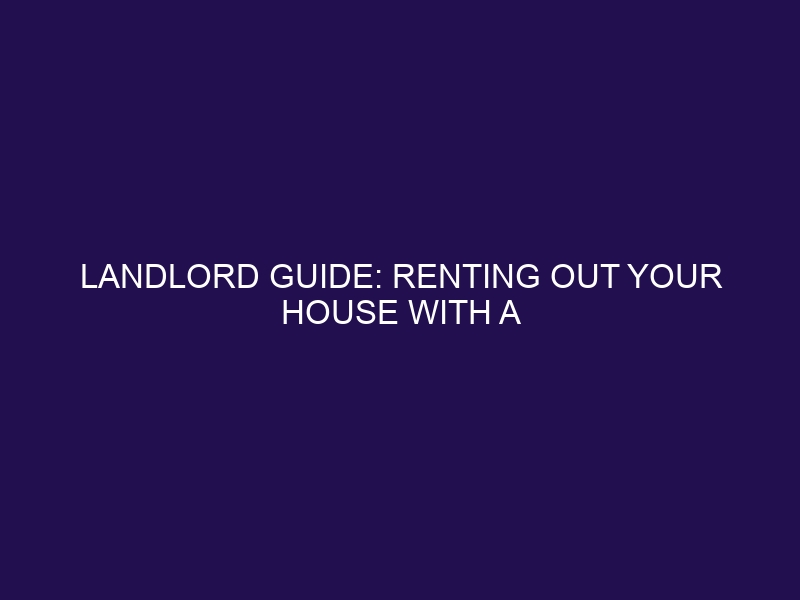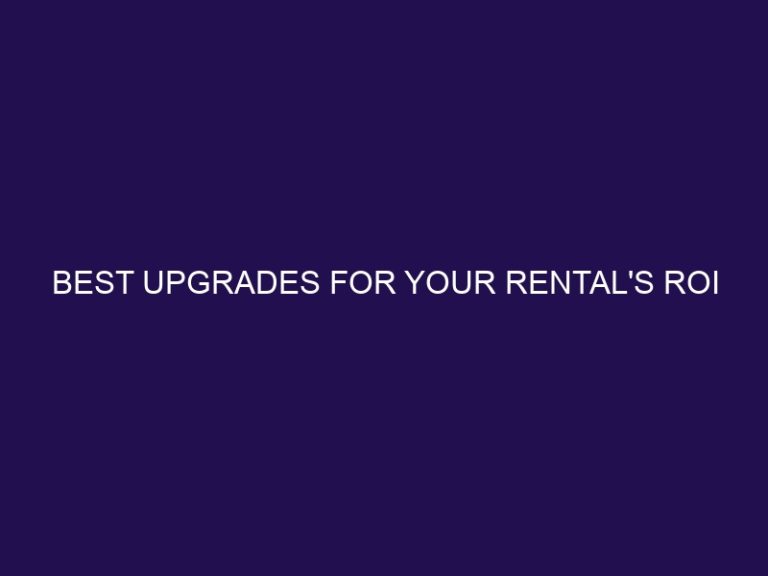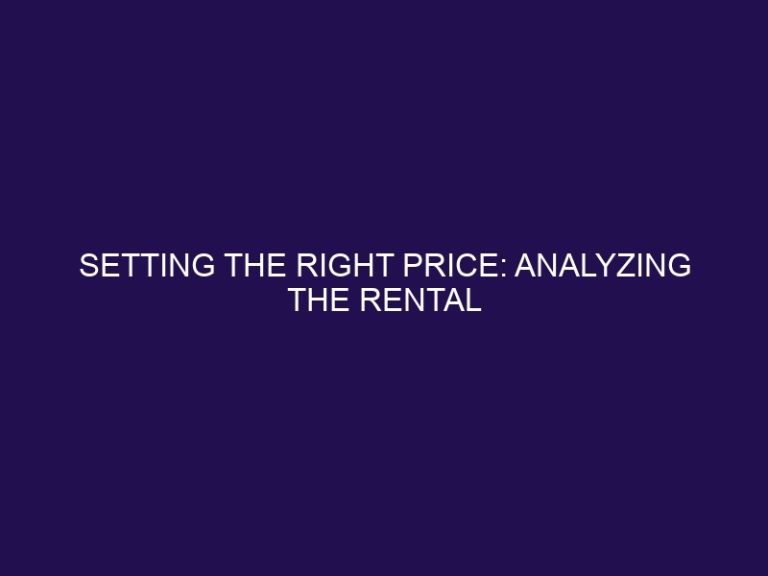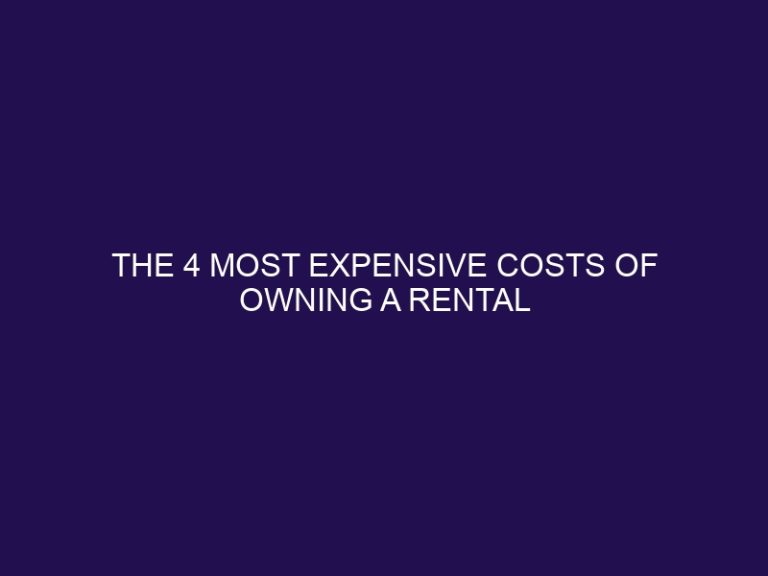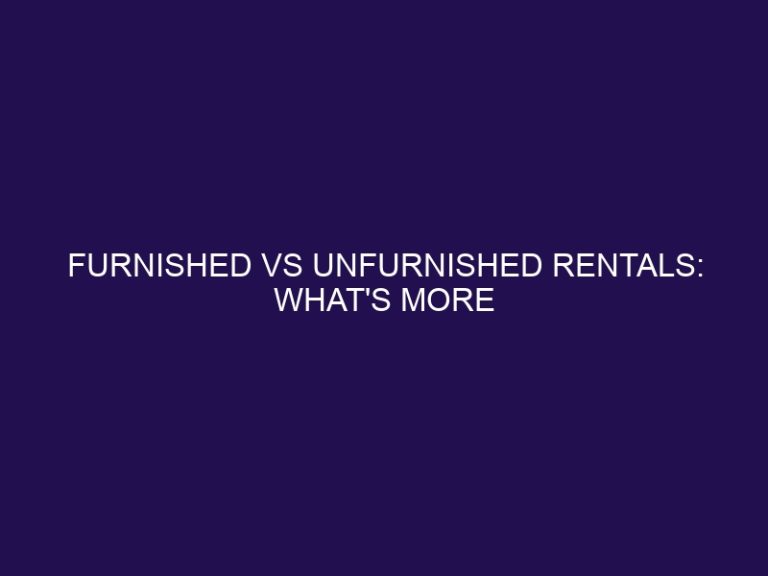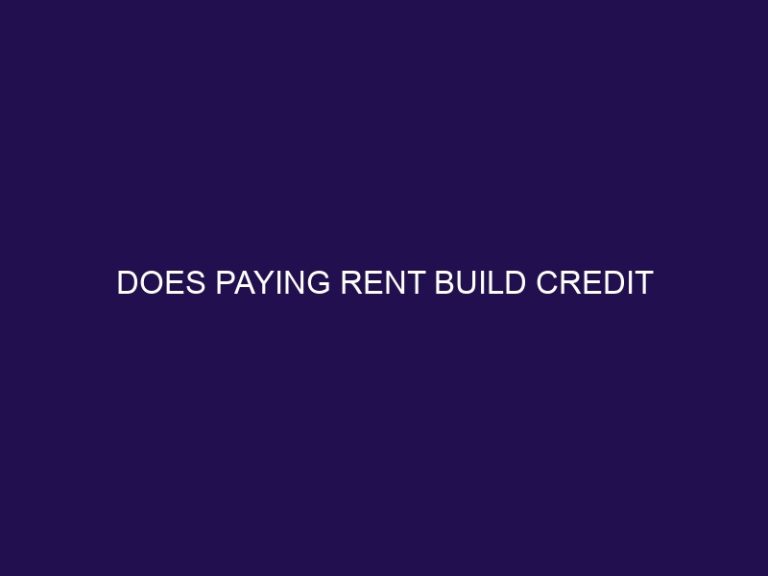Landlord guide: renting out your house with a mortgage
Renting out your house with a mortgage can be a smart financial decision, but it’s important to navigate the process carefully. Understanding your mortgage agreement and legal considerations is crucial to ensure a smooth and successful rental experience. preparing your property for rental, advertising, finding tenants, and managing the rental property are essential steps to consider. Lastly, knowing how to handle tenant issues and frequently asked questions will help you be a successful landlord. Let’s explore each of these sections in detail to guide you through the process of renting out your house with a mortgage.
Understanding Your Mortgage Agreement
Renting out your house with a mortgage? Understanding your mortgage agreement is key. Reviewing the contract, checking for limitations, and notifying your lender – these are the crucial steps we’ll delve into. So, buckle up and let’s navigate through the intricacies of your mortgage agreement to ensure a smooth and successful rental journey. No surprises, just clarity and confidence as you navigate this landlord’s guide.
Review your mortgage contract
Reviewing your mortgage contract is an essential step when renting out your house. Here are a few key considerations to keep in mind:
- Review your mortgage contract thoroughly to understand any clauses or conditions that pertain to renting out your property.
- Pay attention to any restrictions or limitations on rental activities, such as the number of tenants or the duration of lease agreements.
- Notify your mortgage lender about your intention to rent out the property, as they may have specific requirements or guidelines.
- Ensure compliance with the landlord-tenant laws in your area and obtain any necessary permits or licenses.
- Seek legal advice if you have any questions or concerns about your mortgage contract.
By reviewing your mortgage contract and understanding its terms, you can make informed decisions and avoid any potential issues down the line.
Check for any restrictions or limitations
When considering renting out your house with a mortgage, it is important to check for any restrictions or limitations that may be included in your mortgage agreement. Here are some key points to consider:
- Review your mortgage contract thoroughly to ensure that you are aware of any clauses related to renting out your property.
- Check for any specific restrictions or limitations on renting out your house, such as occupancy limits or the requirement for prior approval from the lender.
- Notify your mortgage lender about your intention to rent out the property and make certain that you comply with any requirements they may have.
By checking for any restrictions or limitations, you can make sure that you are in compliance with your mortgage agreement and avoid any potential issues.
Notify your mortgage lender
When planning to rent out your house with a mortgage, it is important to inform your mortgage lender about your intentions. Here are the steps to follow:
- Review your mortgage contract to understand any requirements or restrictions related to renting.
- Check for any limitations on lease terms, number of tenants, or rental income.
- Notify your mortgage lender about your intention to rent out the property and provide them with any required documentation.
Fact: Notifying your mortgage lender is crucial as failure to do so may result in a breach of your mortgage agreement.
Legal Considerations
When renting out your house with a mortgage, it’s crucial to navigate the legal considerations smoothly. From knowing the landlord-tenant laws in your area to obtaining the necessary permits and licenses, staying on top of the legalities can make or break your experience as a landlord. So, let’s dive into the regulations, requirements, and important facts you need to be aware of to protect your rights and responsibilities while renting out your property.
Know the landlord-tenant laws in your area
Knowing the landlord-tenant laws in your area is essential when renting out your house with a mortgage. It is crucial to familiarize yourself with the specific laws and regulations that apply to landlords and tenants in your location. This knowledge helps ensure that you comply with legal requirements and avoid potential conflicts with tenants. Consider the following key points:
1. Research: Take the time to educate yourself about the landlord-tenant laws and regulations that are applicable in your area. This will enable you to have a clear understanding of the rights and responsibilities of both landlords and tenants.
2. Tenant rights: It is important to comprehend the rights and responsibilities of both parties involved in a rental agreement. This includes understanding eviction procedures, maintenance obligations, security deposits, and lease agreements.
3. Discrimination laws: Be aware of the laws that prohibit discrimination based on various factors such as race, gender, religion, disability, or familial status. Understanding these laws ensures that you treat all potential and current tenants fairly and equitably.
4. Legal documentation: To protect your rights and clearly outline the expectations for the tenancy, it is crucial to draft legally sound lease agreements and other necessary documents. These documents should accurately reflect the terms and conditions of the rental agreement.
By incorporating all the provided keywords naturally, the rewritten text maintains the language and HTML tags while emphasizing the importance of understanding and complying with the landlord-tenant laws in your area.
Obtain the necessary permits and licenses
- To legally rent out your house with a mortgage, it is crucial to acquire the required permits and licenses.
- Before proceeding, familiarize yourself with the landlord-tenant laws in your area to fully understand the specific requirements for obtaining permits and licenses.
- Reach out to your local housing authority or city council to inquire about the permits and licenses necessary for renting out your property.
- Complete the submission process by providing the essential documentation and paying the required fees. This may include providing proof of ownership, undergoing property inspections, and background checks.
- Once your application is approved, you can then proceed to obtain the permits and licenses that are crucial for legally renting out your property.
Failure to acquire the necessary permits and licenses can lead to legal consequences and fines. It is essential to ensure your compliance with all regulations to avoid any complications in the future.
Preparing Your Property for Rental
When it comes to preparing your property for rental, there are several key steps you need to take. First, ensure that any necessary repairs and upgrades are taken care of to attract potential tenants. Then, give your property a thorough cleaning and stage it to showcase its best features. Setting a competitive rental price is crucial to attract quality applicants. Once everything is in order, it’s time to advertise your property and carefully screen potential tenants. Let’s delve into these steps to set you up for a successful and profitable rental experience.
Make necessary repairs and upgrades
To prepare your property for rental, you’ll need to make necessary repairs and upgrades. Here are some steps to follow:
-
Inspect the property: Conduct a thorough inspection to identify any repairs or upgrades that may be needed.
-
Prioritize repairs: Determine which repairs are necessary for the safety and functionality of the property.
-
Fix structural issues: Address any structural issues like leaky roofs, cracked foundations, or faulty electrical systems.
-
Upgrade appliances: Consider upgrading old appliances to attract tenants and increase the value of the property.
-
Paint and refresh: Give the property a fresh coat of paint and consider updating outdated fixtures or finishes.
In a similar vein, a friend of mine decided to rent out her house. Before listing it, she made necessary repairs and upgrades, such as fixing a leaky faucet, replacing worn-out carpets, and repainting the walls. These improvements not only attracted high-quality tenants but also allowed her to charge a higher rent, making the rental property more profitable in the long run.
Clean and stage the property
Cleaning and staging the property is an essential step when renting out your house with a mortgage. It helps attract potential tenants and create a positive first impression. Here is a list of steps to clean and stage the property effectively:
By following these steps, you can clean and stage the property to make it more appealing to potential tenants and increase your chances of finding qualified renters.
Set a competitive rental price
- Ensure that you set a competitive rental price to attract tenants and ensure a profitable rental property.
- Take the time to research the local rental market, including average prices and demand.
- Consider factors such as location, size, condition, and amenities when determining the price for your property.
- Compare your rental property to similar ones in the area to get an idea of its value.
- Take into account any unique features or upgrades that may justify a higher rental price.
- Remember to include additional costs like property taxes, insurance, and maintenance expenses before finalizing the rental price.
- Be flexible and willing to adjust the rental price according to market conditions.
Remember, finding the right balance between a competitive rental price and maximizing your return on investment is essential.
Advertising and Finding Tenants
Looking to rent out your house with a mortgage? Let’s dig into the crucial aspect of advertising and finding tenants. We’ll uncover effective strategies to determine your target market, craft a solid lease agreement, handle finances seamlessly, and address maintenance and repairs efficiently. Get ready to attract the right tenants and ensure a smooth landlord experience!
Determine your target market
Determining your target market is a crucial step in renting out your house with a mortgage. Take the time to determine your target market and understand who would be interested in renting your property and tailor your advertising efforts accordingly.
- Demographics: Consider factors such as age, income, and occupation when identifying your target market.
- Location: Take into account the location of your property and the amenities or attractions nearby to attract the right tenants.
- Rental Features: Highlight the features of your property that would appeal to your target market, such as proximity to schools for families or a home office space for professionals.
- Advertising Channels: Use platforms like online listings, social media, and local newspapers that are popular among your target market to reach a wider audience.
Advertise the property
To effectively advertise your rental property, it is crucial to reach your target market and present the property in the best light. Here are some valuable tips to help you promote your property:
- Advertise the property by taking high-quality photos and crafting an attractive listing description that highlights its features and amenities.
- Utilize online platforms like rental listing websites, social media platforms, and online classifieds to broaden your audience.
- Extend your reach by distributing flyers or hanging up posters in local community centers, supermarkets, and other public areas.
- To streamline the advertising and tenant screening process, you may consider enlisting the services of a real estate agent or a property management company.
- Make sure to promptly respond to inquiries and schedule property viewings to meticulously demonstrate the rental’s potential.
Screen potential tenants
Screen potential tenants for your rental property by following these steps:
- Establish criteria: Determine the qualities you desire in a tenant, including income, credit history, and rental references.
- Mandate an application: Request potential tenants to complete a comprehensive application form that includes personal information, employment details, and references.
- Conduct background checks: Perform thorough background checks to verify the tenant’s criminal history, eviction history, and creditworthiness.
- Contact references: Reach out to the tenant’s previous landlords to gather insights about their rental history and address any concerns.
- Arrange an interview: Schedule an interview to evaluate the tenant’s compatibility with your property and get a sense of their personality.
- Validate income: Ask for proof of income such as pay stubs or tax returns to ensure that the tenant can afford the rent.
By adhering to these steps, you can effectively screen potential tenants and identify the perfect match for your rental property.
Managing Your Rental Property
Successfully managing your rental property is vital for landlords seeking to maximize profits and minimize headaches. In this section, we’ll explore key aspects of effectively managing your rental property. We’ll discuss tips on determining your target market, creating a comprehensive lease agreement, handling finances and rent collection, and efficiently addressing maintenance and repair issues. By mastering these essential elements, you’ll be on your way to becoming a successful landlord with a well-operated, income-generating property.
Create a comprehensive lease agreement
Creating a comprehensive lease agreement is crucial for renting out your house with a mortgage. Here are the steps to follow:
- Include all relevant details: Clearly state the rental property’s address, tenant’s name, and lease term.
- Define rent and payment terms: Specify the monthly rent, due date, and acceptable payment methods.
- Outline responsibilities: Clearly state the tenant’s duties, such as maintenance and repairs.
- Include terms for utilities: Determine which utilities the tenant is responsible for and how charges will be assessed.
- Establish rules and restrictions: Outline any specific rules regarding pets, smoking, or noise.
- Address security deposit: State the amount of the security deposit and the conditions for its return.
- Include termination clauses: Specify conditions for early termination and procedures for renewing the lease.
- State dispute resolution procedures: Indicate how any disagreements between the landlord and tenant will be resolved.
By following these steps, you can create a comprehensive lease agreement that protects both you and your tenant.
Collect rent and handle finances
Collecting rent and managing finances is an important aspect of renting out your house. Here are some steps to follow:
- Create a system for collecting rent, whether it’s through online platforms, checks, or direct deposit.
- Establish clear rent due dates and late payment penalties.
- Keep accurate records of all rent payments and expenses related to your rental property.
- Set aside funds for maintenance and repairs to ensure the property stays in good condition.
- Track and organize receipts and invoices for tax purposes.
Now here’s a true story: I once had a tenant who consistently paid their rent late. After discussing the issue with them and implementing a late fee, their payment habits improved, and we were able to handle the finances effectively while maintaining a positive landlord-tenant relationship.
Address maintenance and repairs
Addressing maintenance and repairs is of utmost importance when renting out your house with a mortgage. Here are some vital steps to consider:
- Regularly Inspecting: Carry out routine inspections to identify any maintenance issues or repairs that require attention.
- Timely Communication: Respond promptly to tenant requests for maintenance and promptly address the issues.
- Building Relationships: Foster relationships with dependable and trustworthy contractors to efficiently handle repairs.
- Maintenance Budgeting: Allocate a portion of the rental income for unexpected repairs and regular maintenance.
- Preventive Measures: Take proactive measures to prevent major issues, such as regular HVAC servicing and cleaning of gutters.
One landlord, Sarah, encountered a water leak in her rental property. Thanks to her proactive approach and close relationship with a plumber, the problem was swiftly resolved, minimizing any inconvenience for her tenants and preventing further damage to the property.
Handling Tenant Issues
When it comes to renting out your house with a mortgage, handling tenant issues is a crucial aspect of being a landlord. From dealing with late payments or non-payment to addressing tenant complaints and navigating lease renewals or terminations, this section covers it all. We’ll explore strategies, tips, and advice to effectively manage these common challenges that landlords often face. So, let’s dive in and equip ourselves with the knowledge to handle tenant issues like a pro.
Deal with late payments or non-payment
Dealing with late payments or non-payment is a crucial aspect of being a landlord. It is essential to have a clear plan in place to address these issues. Here are some steps to follow:
- Communication: Take immediate action by reaching out to the tenant as soon as you notice a missed payment. Understand the reasons behind the delay and engage in a discussion about potential solutions.
- Reminder and Late Fees: Ensure you remind the tenant about the due date and enforce any late fees stated in the lease agreement.
- Payment Plans: If the tenant is facing financial difficulties, consider negotiating a payment plan that satisfies both parties.
- Legal Action: If the tenant continues to fail in making payments, consult with a lawyer and follow the legal process to recover the unpaid rent.
- Termination: In situations where the problem becomes unmanageable, you may need to terminate the lease agreement and find a new tenant.
Handle tenant complaints
When handling tenant complaints, it’s crucial to promptly and professionally address them to maintain a positive landlord-tenant relationship. Here are a few steps to effectively handle tenant complaints:
1. Listen attentively: Give tenants a chance to express their concerns and actively listen to understand their perspective.
2. Investigate the issue: Thoroughly gather all relevant information and investigate the complaint to determine its validity and root cause.
3. Communicate openly: Keep tenants informed about the progress of resolving the issue and provide realistic timelines for resolution.
4. Take appropriate action: Once you’ve identified the problem, take necessary steps to promptly address it, whether that involves repairing a malfunctioning appliance or resolving a noise issue with another tenant.
5. Document everything: Maintain a record of all communication and actions taken to demonstrate your commitment to resolving the complaint.
Remember, a proactive and respectful approach in handling tenant complaints can prevent minor issues from escalating and ensure a harmonious rental experience.
In a similar situation, a tenant raised concerns about a persistent leak in the bathroom. The landlord promptly arranged for a plumber to assess and fix the issue. They maintained regular communication with the tenant, keeping them informed of the progress. Within a week, the problem was successfully resolved, and the tenant expressed appreciation for the quick response and effective resolution of the complaint. This proactive approach fostered a positive working relationship between the tenant and landlord throughout the tenancy.
Renewing or terminating leases
When it comes to renewing or terminating leases for rental properties, landlords should follow a structured approach. Here are the steps to consider:
- Review lease agreements: Examine the terms and conditions outlined in the existing lease agreements.
- Discuss with tenants: Initiate a conversation with tenants to understand their intentions and preferences regarding the renewal or termination of leases.
- Provide notice: If the landlord intends to terminate the lease, provide written notice within the required timeframe as per local laws.
- Renewal negotiation: If both parties agree to renew the lease, discuss any changes to the terms, such as rent adjustments or lease duration.
- Document agreements: Document any changes or agreements made during the lease renewal process through an addendum to the existing lease.
- Update rental records: Maintain accurate records of lease renewals or terminations for financial and legal purposes.
By following these steps, landlords can effectively manage the process of renewing or terminating leases for their rental properties.
Frequently Asked Questions
Can I rent out my house if I have a mortgage?
Yes, renting out a house with a mortgage is legal. However, it is important to inform your lender and ensure you meet their requirements. Different lenders have different rules regarding occupancy, so renting out your home may violate the terms of the loan. Most mortgage lenders allow you to rent out your house if you have lived in it for at least 12 months before renting it out.
What are the necessary requirements to rent out a house with a mortgage?
To rent out a house with a mortgage, it is important to review the terms of your loan and contact your mortgage company to understand any specific rules or requirements. Additionally, consulting with a lawyer, business manager, or accountant can provide advice on local landlord-tenant laws and potential tax consequences. If you live in a planned community or condominium building, it is also important to speak to the homeowner’s association (HOA) about their rules regarding tenants.
Can I rent out my house with an FHA loan?
Renting out a house with an FHA loan is possible, but not immediately after purchasing the property. FHA loans require the owner to occupy the residence for at least a year, unless under certain circumstances. It is important to research and understand the specific rules and restrictions of your loan and consult with professionals to ensure compliance.
What are the advantages of renting out my primary residence?
Renting out your primary residence can have advantages, as mortgages on primary residences tend to have more favorable terms, such as lower interest rates and easier qualifications. Additionally, renting to homeowners who will use the property as their primary residence is less risky for lenders than renting to investors with multiple investment properties.
Are online rental apps helpful for finding tenants?
Yes, online rental apps can be helpful for finding tenants. These apps provide a platform where landlords can list their properties and potential tenants can search for available rentals. They often include features such as property descriptions, photos, and even the ability to connect with potential tenants directly through the app.
Are there any fine print or additional terms and conditions when renting out a house with a mortgage?
Yes, there may be fine print or additional terms and conditions to consider when renting out a house with a mortgage. It is important to thoroughly review the loan terms and consult with professionals to ensure compliance. The actual offer terms from an advertiser may differ from the terms on the site, and the advertised offers may have additional terms and conditions.

